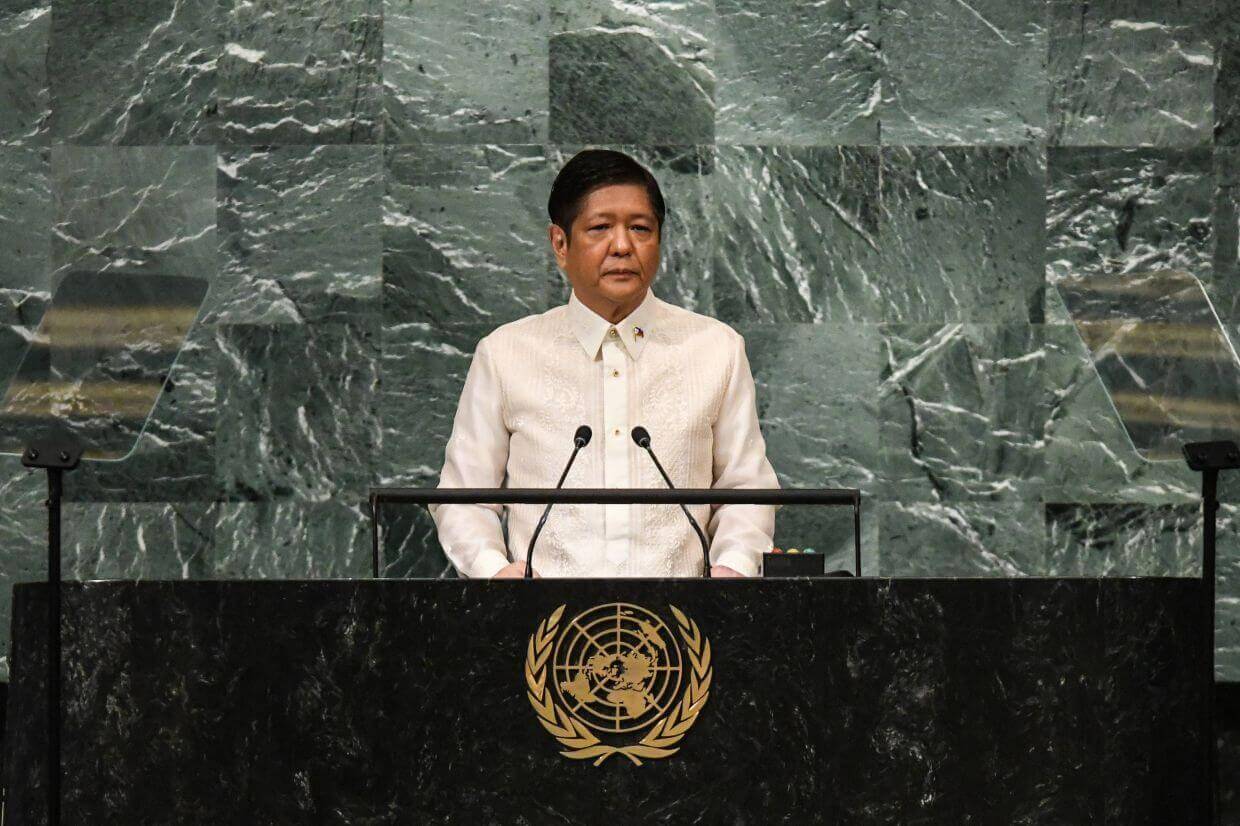In his first address to the United Nations (UN) General Assembly during the high-level General Debate on Wednesday, Philippine President Ferdinand Marcos Jr. said climate change reflects a pattern of historical injustice and called on industrialised nations to do more to assist developing nations.
“The effects of climate change are uneven and reflect an historical injustice: Those who are least responsible suffer the most,” Marcos declared, giving the example of the Philippines, which he said is “a net carbon sink” that absorbs more carbon dioxide than it emits. “And yet, we are the 4th most vulnerable country to climate change. This injustice must be corrected,” he stated.
Marcos said the threat of climate change “knows no borders, no social class, nor any geopolitical consideration.” “How we address it will be the true test of our time,” he said. The president acknowledged that the Philippines bears its “share of responsibility” and pledged to continue doing its part “to avert this collective disaster.”
To this end, he called on industrialised countries “to immediately fulfil their obligations” under the United Nations Framework Convention on Climate Change and the Paris Agreement and “to cut their greenhouse gas emissions” and “provide climate financing and technology transfer for adaptation for the most vulnerable and developing countries.”
Furthermore, Marcos demanded “urgent action” on the “unresolved problem” of “inequalities and inequities within and among countries,” remarking that these inequalities have been “evident during this pandemic, when the richer nations immediately received vaccines at the expense of the have-nots.” This gap can also be seen “lurking in the persistent digital divide and in ballooning debt burdens,” he noted.
We have arrived at the United Nations General Assembly Hall together with the Philippine Delegation.
— Bongbong Marcos (@bongbongmarcos) September 21, 2022
I am humbled and honored to convey the interests and aspirations of 110 million Filipinos and our commitment to the United Nations. pic.twitter.com/q2sgZ8bnsn
He went on to say that as the international community “awakens” from an “economic stupor caused by the pandemic,” it must focus on reinvigorating the world economy. “We must use public and private resources to encourage the expansion of trade, investment, and technology transfers to accelerate development. Knowledge and intellectual gains must flow freely to allow those lagging behind to catch up. Sustainable development will be hampered, to the detriment of all, if existing structures in the global economy remain unreformed,” the president implored.
In line with his focus on sustainability, Marcos said sustainability requires development policies that transcend “traditional metrics.” “We already know that the Gross Domestic Product is an incomplete measure of progress and that vulnerability is multidimensional. Our development agenda must also take into account the interest of all developing nations, including middle-income countries where the majority of the world’s poor live,” he said.
The UN's solidarity must be used to address climate change, ensure that the international system is fair to all people, including the most vulnerable and marginalized, and build modern, resilient agriculture for all nations. pic.twitter.com/AlUtjy07Rv
— Bongbong Marcos (@bongbongmarcos) September 21, 2022
He added that the UN’s collective efforts must also focus “on ensuring that the international system remains fair not only for all states, but more importantly for all peoples.” “This system must work for the most vulnerable, especially the marginalised, migrants and refugees,” he stated.
The Asian leader also raised the issue of nuclear weapons, which he said pose “an existential threat despite our efforts to build norms that resoundingly prohibit them.” “We must reject the notion of deterrence and remain committed to decreasing the global stockpile of these weapons,” he declared. Marcos also called on countries to “address the scourge of the proliferation of all weapons, be they small arms, light weapons, or improvised explosive devices.”
He concluded his speech by saying that today’s “transcendent challenges” are “as consequential as those that faced us seventy-seven years ago,” when the UN was founded. Calling it “a watershed moment,” Marcos called on fellow members to view the “challenges of one people” as “challenges for all nations.”

